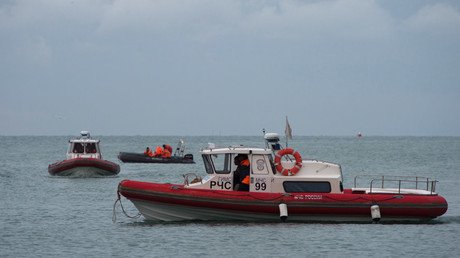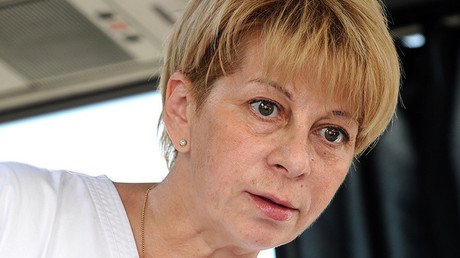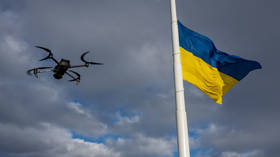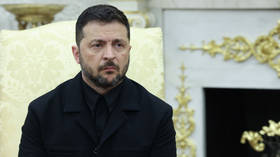Tech failure & human error among main theories for Tu-154 crash, terrorism all but ruled out
The main theories as to why the Tu-154 crashed off Sochi’s coast include a “technical problem or piloting error,” Russia’s transport minister said. Meanwhile, the search operation for debris, black boxes and the bodies of those on board continues, with more ships, divers and aircraft arriving at the scene.
A terrorist act is not suspected among the main possible causes of the crash that killed 92 people on Sunday, Minister Maksim Sokolov said.
“Today, the main theories do not include terrorism, so we assume that either technical problems or a piloting error may have been the cause. But I stress that only an investigation, along with a special technical Ministry of Defense committee will tell us for sure,” the official told a briefing on Monday.
There are so far “no facts indicating a possibility of a terrorist act or diversion aboard the aircraft,” the Russian Federal Security Service (FSB) also announced on Monday. According to the FSB data, among the main possible causes of the crash are penetration of foreign objects into the engine, faulty fuel, piloting error and technical failure.
There was no military or double-purpose cargo on the Tu-154, nor were there any pyrotechnical devices, the FSB said. During refueling in the airport in Adler, a district of the Black Sea resort of Sochi, there were no unauthorized people near the plane.
The search operation has been stepped up. Some 3,500 people are currently working in three shifts.
Forty-five vessels and five helicopters, as well as drones, are now involved in the search operation, according to the latest information from the Russian Defense Ministry.
With updates coming in from emergency and investigative authorities, one of the reports said that a unit of the Emergencies Ministry “[has] discovered large parts of Tu-154 at a depth of about 27 meters,” RT's Ilya Petrenko reported from Sochi. The FSB said they had found witnesses of the crash and a dashcam footage that is currently being examined, he added.
The search zone around the crash site has been expanded, the Emergency Ministry said.
The flight recorders of the crashed Tu-154 haven't been recovered yet, the head of Russia's Emergency Ministry, Vladimir Puchkov, told TASS.
The Tu-154 was initially supposed to refuel in the city of Mozdok in North Ossetia, but due to bad weather the plane was redirected to another airport, “therefore, nobody knew beforehand that the plane would refuel at the airport in Sochi,” a security source told TASS.
After arriving in Adler, “only two border guards and one customs officer came onboard, and only one navigator shortly left the plane to control refueling,” the source added.
The Tu-154 transport plane had 92 people on board, including 84 passengers and eight crew members. It went missing over the Black Sea shortly after refueling at an airport near Sochi. Most of the passengers on board were members of the Alexandrov Ensemble, the official choir of the Russian Armed Forces.
READ MORE: 64 members of world-renowned Alexandrov army band lost in Tu-154 crash (VIDEO)
They were traveling from Moscow to the Russian military base in Khmeimim near Latakia, Syria, to take part in a Christmas celebration with the troops deployed there. The head of the choir, conductor, and composer Valery Khalilov, was also onboard.
The passenger list released by the Defense Ministry on Saturday also includes Elizaveta Glinka, a revered charity activist and humanitarian worker best known by her nickname “Doctor Liza.”
The first plane transporting the victims’ remains has arrived safely in Moscow at Chkalovsky airport outside the Russian capital on Monday.
Russia is observing a nationwide day of mourning for the victims of the Tu-154 crash on Monday.














